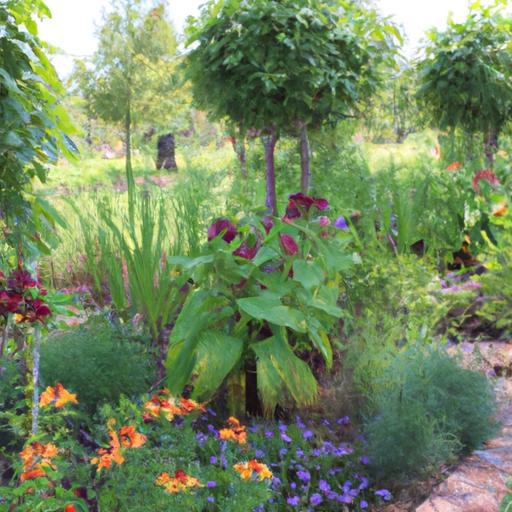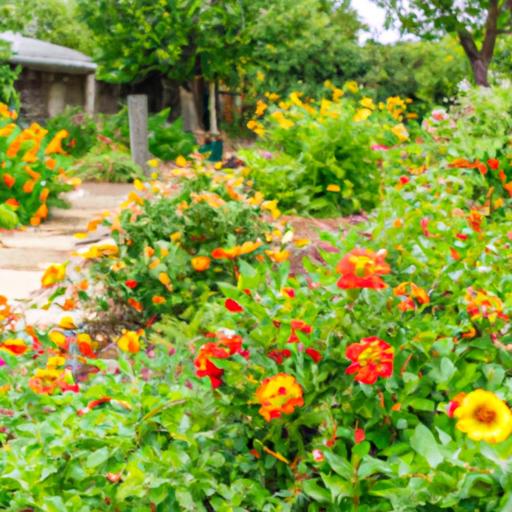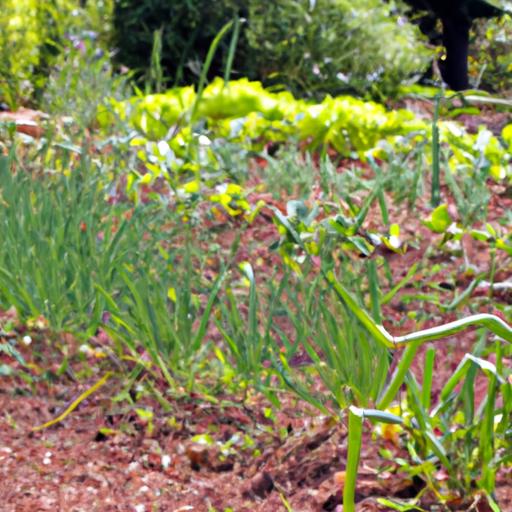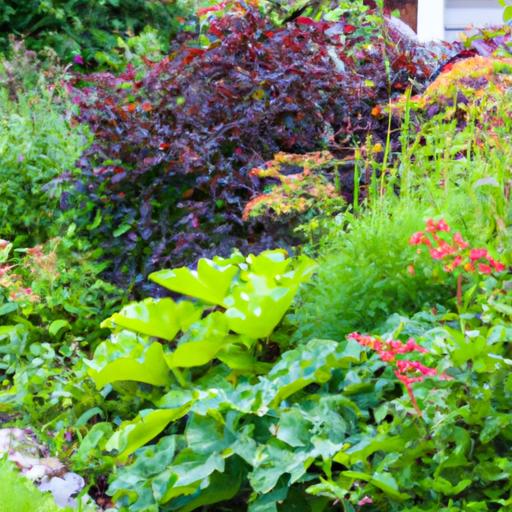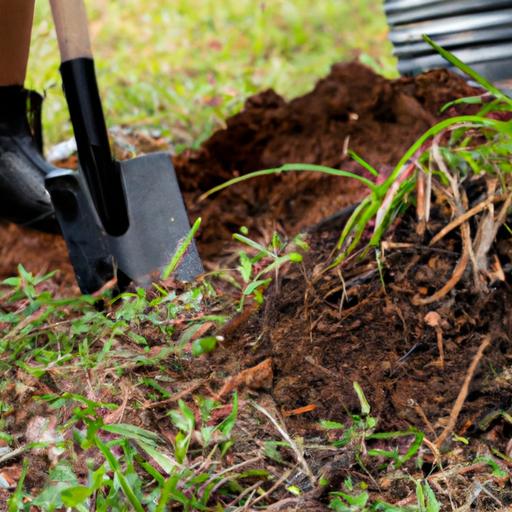Gardening and sports are often seen as separate activities, each with its own distinct characteristics. While some may argue that gardening is a sport, others may strongly disagree. In this article, we will delve into the intriguing debate surrounding gardening and its classification as a sport. But first, let’s establish clear definitions for both gardening and sport.
Definition of Gardening
Gardening is the art and practice of cultivating plants, flowers, and vegetables in a designated area such as a garden or backyard. It involves various tasks like planting, nurturing, and maintaining these green spaces to create a visually appealing and sustainable environment. From planting seeds to pruning plants, gardening encompasses a wide range of activities centered around plant care and beautification.
Definition of Sport
Sports, on the other hand, are typically associated with physical activities involving skill, competition, and adherence to specific rules. Traditional sports like football, basketball, and tennis require physical exertion, strategic thinking, and can involve team or individual competition. They often include elements of athleticism, such as running, jumping, or using specialized equipment.
Explaining the Debate: is gardening a sport?
Now that we understand the basic definitions of gardening and sport, let’s delve into the heart of the debate. The question arises: can gardening be considered a sport? At first glance, it may seem unlikely, as gardening is not commonly associated with the intense physicality and competitive nature typically seen in traditional sports. However, upon closer examination, we can uncover compelling arguments for both sides.
Stay tuned as we explore the characteristics of a sport, evaluate gardening as a physical activity, discuss its competitive aspects, and dive into the skill development involved. By the end of this article, you will have gained a comprehensive understanding of the discussion surrounding gardening as a potential sport. So, let’s dig deeper and seed the grounds for an enlightening journey!
Characteristics of a Sport
Sports possess distinct characteristics that set them apart from other activities. Let’s explore these defining features and examine how they relate to the debate surrounding gardening as a sport.
A. Physical Activity and Exertion
One key characteristic of a sport is the involvement of physical activity and exertion. Traditional sports require participants to engage in physical movements, such as running, jumping, or using specialized equipment. This physicality is often a defining factor in determining whether an activity can be classified as a sport.
B. Competitive Nature
Another crucial aspect of sports is their competitive nature. Competing against others or oneself is a fundamental aspect of many sports. It involves striving for victory, pushing personal limits, and displaying skill and athleticism. The presence of competition adds an element of excitement and intensity to sports.
C. Rules and Regulations
Sports are governed by specific rules and regulations that ensure fair play and maintain a level playing field. These rules define how the game is played, outline permissible actions, and penalize infractions. The existence of well-defined rules is essential in distinguishing sports from other activities.
D. Skill and Technique Development
Sports require participants to develop specific skills and techniques to excel in their chosen discipline. Athletes undergo rigorous training to improve their physical abilities, refine their techniques, and enhance their overall performance. Skill development is a vital aspect of sports and contributes to the competitiveness and progression within the field.
By considering these characteristics, we can begin to evaluate gardening through the lens of a sport. Does gardening involve physical activity and exertion? Is there a competitive aspect to gardening? Are there rules and regulations governing gardening practices? And finally, does gardening require skill and technique development? In the following sections, we will delve into these questions to shed light on the ongoing debate. So, let’s roll up our sleeves and explore the physicality, competitiveness, rules, and skill development within gardening!
Evaluating Gardening as a Physical Activity
Gardening may not be a conventional sport, but it undoubtedly involves physical exertion and can contribute to an individual’s overall fitness and well-being. Let’s evaluate gardening as a physical activity by considering its physical demands, comparing it with traditional sports, and exploring its effects on physical fitness and health.
A. Physical Demands of Gardening
Gardening requires various physical movements and activities that engage different muscle groups. Tasks like digging, lifting heavy pots or bags of soil, and bending or squatting to tend to plants all demand strength, flexibility, and endurance. These activities can provide a moderate-intensity workout, leading to increased heart rate, improved circulation, and enhanced muscular strength.
B. Comparison with Traditional Sports
While gardening may not involve the same level of intensity and competition as traditional sports, it shares certain similarities. Like sports, gardening requires physical effort, skill, and technique. It also involves repetitive motions and sustained activity, which can help in developing stamina and promoting overall physical fitness. Additionally, just like athletes, gardeners strive for continuous improvement in their craft, seeking to enhance their techniques and achieve better results.
C. Effects on Physical Fitness and Health
Engaging in regular gardening activities can have significant positive effects on physical fitness and health. Studies have shown that gardening can contribute to weight management, as it burns calories and helps maintain a healthy body mass index (BMI). Furthermore, spending time outdoors while gardening exposes individuals to sunlight, allowing the body to synthesize vitamin D, which is essential for bone health.
Moreover, gardening serves as a stress-relieving activity, promoting mental well-being and reducing the risk of mental health issues such as anxiety and depression. The act of nurturing plants and witnessing their growth can be deeply satisfying and therapeutic, providing a sense of accomplishment and connection with nature.
In conclusion, while gardening may not fit the traditional mold of a sport, it undoubtedly qualifies as a physical activity with numerous benefits. Its physical demands, comparison with traditional sports, and positive effects on physical fitness and health make a compelling case for considering gardening as a valuable form of exercise and self-expression. So, grab your gardening tools and get ready to cultivate not just plants but also a healthier and happier you!
Competitive Aspects of Gardening
Gardening may not be the first thing that comes to mind when thinking about competitive activities, but it’s worth exploring the competitive aspects that exist within the gardening world. Let’s take a closer look at how gardening competitions and events, judging criteria and standards, and the pursuit of prizes and recognition contribute to the competitive nature of gardening.
A. Gardening Competitions and Events
Believe it or not, there are numerous gardening competitions and events held around the world. These events bring together enthusiastic gardeners who showcase their skills, creativity, and horticultural expertise. From flower shows to vegetable-growing contests, these competitions provide a platform for gardeners to demonstrate their talent and passion.
Gardening competitions often feature categories based on specific plants, garden designs, or even entire landscapes. Participants are judged on various criteria, including the visual appeal of their gardens, the health and quality of their plants, and their ability to create unique and harmonious outdoor spaces. These events not only foster healthy competition but also serve as opportunities for gardeners to learn from one another and gain inspiration.
B. Judging Criteria and Standards
In gardening competitions, judging criteria and standards play a crucial role in determining the winners. Expert judges assess different aspects of the gardens, taking into consideration factors such as plant quality, design principles, creativity, and overall maintenance. The judging process ensures fairness and objectivity, showcasing the highest standards of horticulture and garden design.
These criteria and standards create a framework that gardeners strive to meet or exceed, pushing themselves to improve their skills and techniques. As gardeners aim for excellence in their craft, they continuously refine their abilities to create stunning and well-maintained gardens.
C. Competing for Prizes and Recognition
Just like in traditional sports, gardening competitions offer participants the opportunity to compete for prizes and recognition. Winners may receive accolades, certificates, or even monetary rewards for their outstanding achievements. These rewards serve as motivation for gardeners to put their best foot forward and showcase their expertise.
Moreover, the recognition gained through these competitions can open doors for gardeners to establish themselves as experts in the field. It may lead to opportunities to collaborate with renowned horticulturists, contribute to gardening publications, or even become sought-after speakers in gardening events. The competitive aspect of gardening not only fuels personal growth but also elevates the overall gardening community.
In the next section, we will delve into the importance of skill development in gardening and explore the techniques, tools, and continuous learning that contribute to becoming a proficient gardener. So, let’s dig deeper into the world of gardening skills!
Skill Development in Gardening
Gardening is not merely a recreational activity; it is a pursuit that requires a range of skills and knowledge. Let’s explore how gardening can be a platform for skill development, enabling individuals to cultivate their abilities and grow as gardeners.
A. Techniques and Tools Used in Gardening
Gardening involves a plethora of techniques and specialized tools that contribute to successful plant cultivation. From understanding soil composition and pH levels to learning proper planting techniques, gardeners acquire a diverse set of skills. Pruning, grafting, and propagation are just a few examples of techniques that gardeners employ to ensure healthy plant growth and maximize yields. Moreover, the effective use of gardening tools such as shovels, trowels, and shears requires precision and dexterity.
B. Importance of Knowledge and Experience
Gardening is not limited to digging holes and planting seeds; it demands a deep understanding of horticulture principles. Knowledge about plant species, their growth patterns, and their specific care requirements is crucial. Experienced gardeners possess valuable insights on factors like proper watering, pest control, and plant nutrition. This accumulated knowledge allows them to make informed decisions and take preventive measures to maintain plant health.
Moreover, gardening provides a platform for experiential learning. As gardeners experiment with different plant varieties, growing conditions, and techniques, they gain firsthand experience and refine their skills. They learn to adapt to various challenges, such as unpredictable weather conditions or soil deficiencies, further enhancing their problem-solving abilities.
C. Continuous Learning and Improvement
Gardening is an ongoing learning process, offering endless opportunities for growth and improvement. Gardeners are constantly exposed to new information, advancements in gardening techniques, and innovative practices. They can attend workshops, join gardening communities, or seek guidance from experienced horticulturists to expand their knowledge base. This continuous learning journey not only enhances their gardening skills but also nurtures their passion for the art of cultivation.
In conclusion, gardening is not just about planting flowers or growing vegetables; it is a skill-building endeavor. Through mastering various gardening techniques, utilizing specialized tools, acquiring knowledge, and continuously learning and improving, gardeners demonstrate their commitment to honing their craft. The development of these skills elevates gardening beyond a mere hobby, blurring the line between artistry and athleticism. So, grab your gardening gloves and embark on an enriching journey of skill development through the world of gardening!
Conclusion
After carefully examining the debate surrounding gardening as a sport, it is clear that opinions differ on whether it can truly be classified as such.
On one hand, gardening does not possess all the typical characteristics of a sport. It may not involve intense physical activity or direct competition against others. However, gardening does require physical exertion, skill development, and adherence to techniques and practices. It offers a form of personal competition and achievement, as gardeners strive to cultivate the most beautiful and thriving gardens.
From a broader perspective, the classification of gardening as a sport may not be as crucial as recognizing its numerous benefits. Gardening provides a multitude of physical, mental, and emotional advantages. It promotes physical fitness, relaxation, stress reduction, and the joy of nurturing living things.
Ultimately, whether you view gardening as a sport or not, it remains an enjoyable and rewarding activity that brings individuals closer to nature and enhances their overall well-being. So, whether you consider yourself a gardener or an athlete, embrace the joy of gardening and revel in the bountiful rewards it offers.
In conclusion, the debate on whether gardening is a sport may continue, but the undeniable truth is that gardening encompasses elements of physical activity, competition, skill development, and personal achievement. So grab your gardening tools, put on your gardening gloves, and let the enchanting world of gardening captivate you with its beauty and serenity. Happy gardening!
